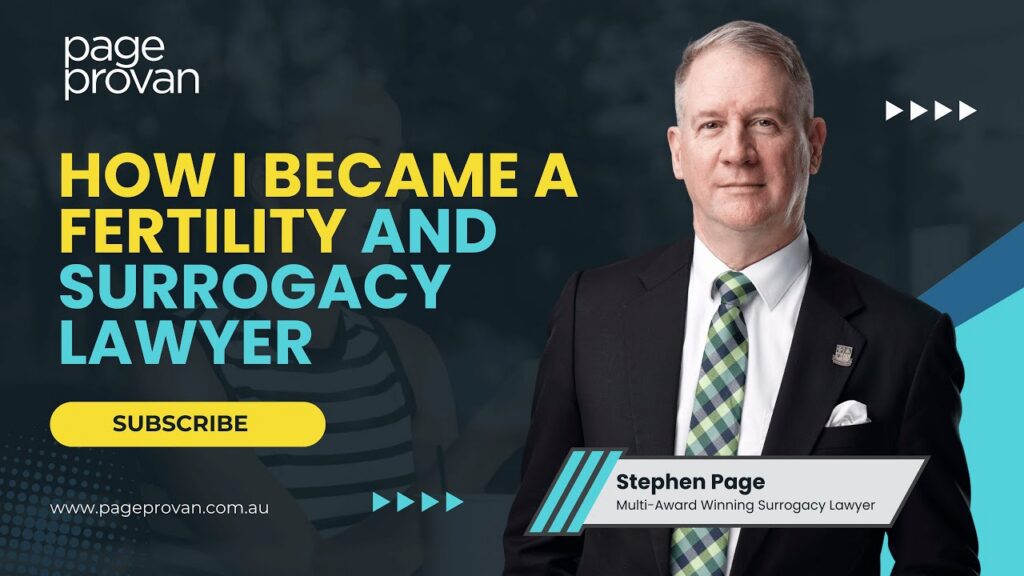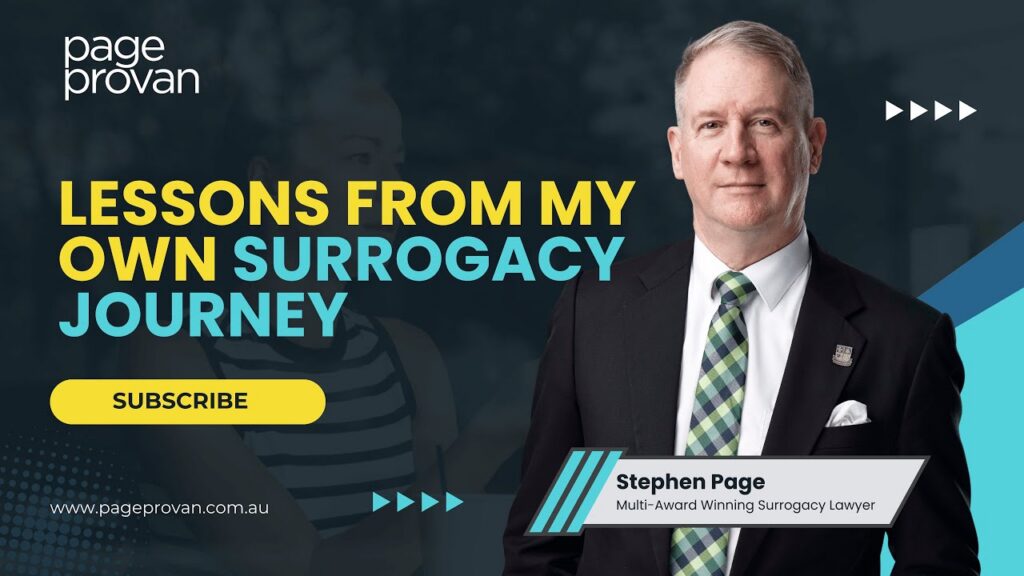Alternatives to Family Law Litigation
Once, the far majority of family law disputes ended in protracted court proceedings, now it’s completely different. At Page Provan, we’re an early resolution focused law firm. In this video, Accredited Family Law Specialist, Bruce Provan discusses the range of options available when resolving family law matters.
Transcript
My name’s Bruce Provan, I’m the Managing Director of Page Provan, Family and Fertility Lawyers. I want to talk to you today about the alternatives to going to court. Now, as lawyers, a big part of our practice is going to court, but increasingly the court process is becoming more problematic.
There are long delays in court, and court can be an expensive and stressful process for clients. But often, court is the best option. But I want to talk about the alternatives to going to court because most matters, most family law matters either don’t go to court, or if they start in court, they’re resolved before they get to a final hearing.
So the first alternative is negotiation, and the negotiation can either be direct between the parties themselves or it can be negotiations through lawyers and that often leads to a resolution. If it doesn’t, there are a few other options. One is to go to mediation, and that’s one of my favourites. I’m a nationally accredited mediator.
Mediation in relation to parenting matters is known as family dispute resolution, and certain people are qualified as what they call family dispute resolution practitioners. In other words, specially qualified as mediators for parenting disputes.
Now, of the matters that go to mediation, I’m advised by mediators that they have around about an eighty percent success rate. Now, of the other twenty percent that don’t resolve, sometimes there will be further negotiations, or sometimes those matters will end up in court.
But there are a few other options. One option is collaborative law, which was something that was developed in the US about 20 years ago, and certain lawyers are trained as collaborative lawyers, and I’m trained as a collaborative lawyer. What it involves is an arrangement that lawyers enter into an agreement with their clients that they will try to resolve the matter outside the court process.
That will generally involve a number of meetings between the clients and their lawyers, and often it will involve other professionals, such accountants, psychologists, etc. The deal with collaborative law is that if the matter doesn’t resolve through negotiation and has to go to court, both sides need to engage other lawyers for the litigation.
Another option that is becoming more popular is arbitration. It’s only really begun in a big way in the last few years and if there’s a property matter, the parties can choose to engage an arbitrator.
An arbitrator is usually an experienced family lawyer or often a former judge, and they act like a private judge where they’re paid to hear the matter and resolve the matter the same way that a judge would, and they make an award and that award can be registered in the court and have the same effect as a court order.
At this stage, there’s no arbitration in relation to parenting matters, but I think that will come. The advantage of arbitration is that the matter can be resolved fairly quickly, much more quickly through the court process generally, and the arbitrator has to give their award within 28 days generally, but also has the advantage that there’s some flexibility.
So for example, some people agree that they’re going to have an arbitration on the papers, and what that means is that rather than having a hearing like there would be in a court, documents are provided to the arbitrator, the arbitrator reads the documents and then they will give a judgment based upon that.
So, there the alternatives to going to court and in most cases, we advise our clients of all of those options and discuss which is the most appropriate option for them. During the course of the matter, the best option may change depending largely on the attitude of the other party.
Thank you for your time, my name is Bruce Provan, I’m from Page Provan, Family and Fertility Lawyers.












